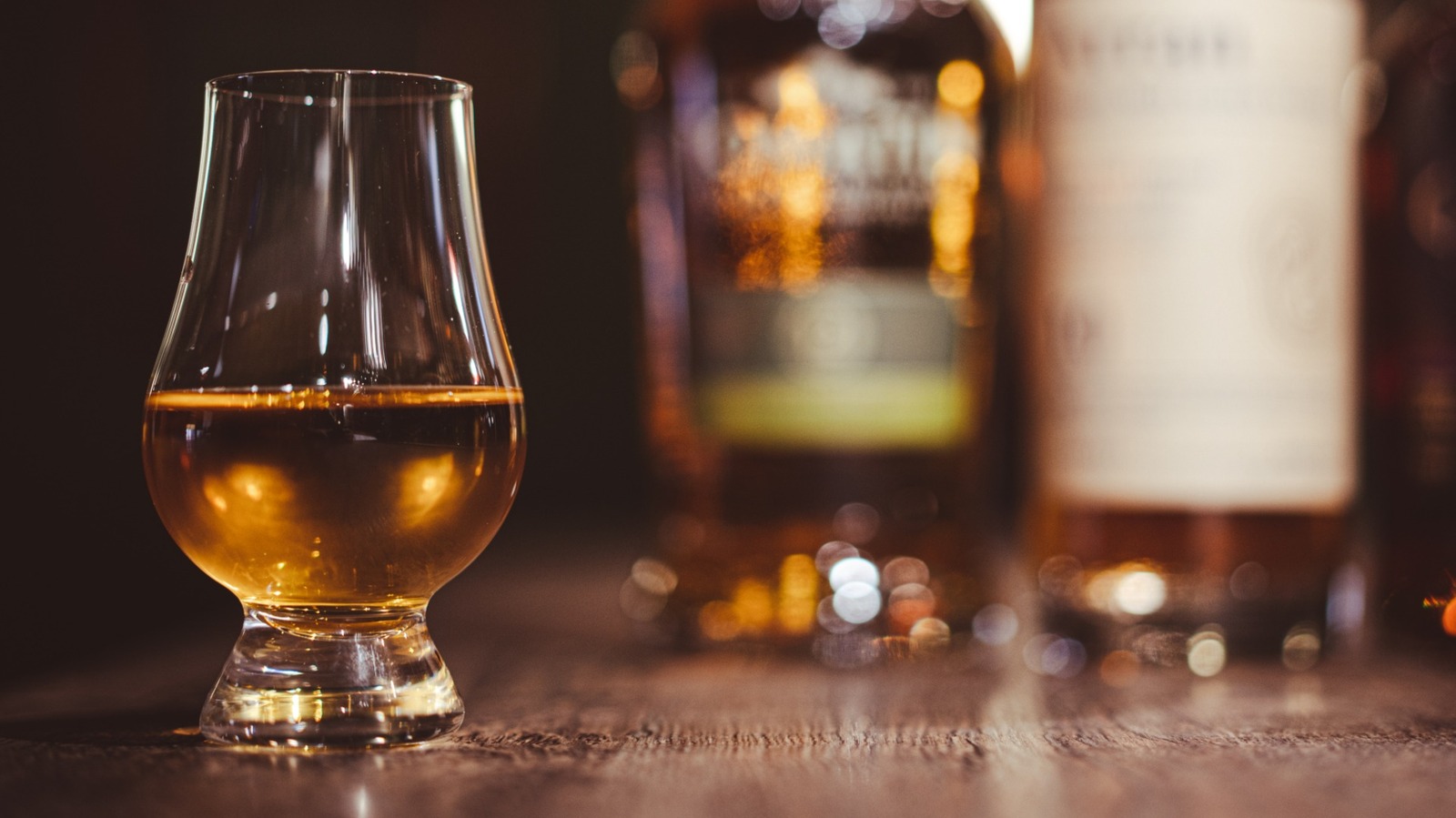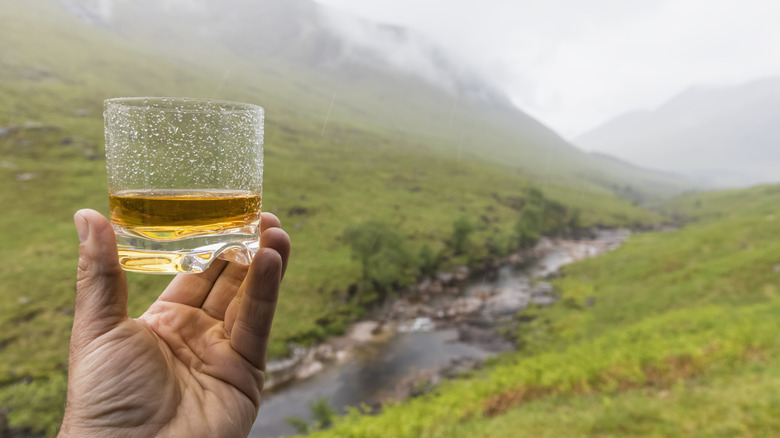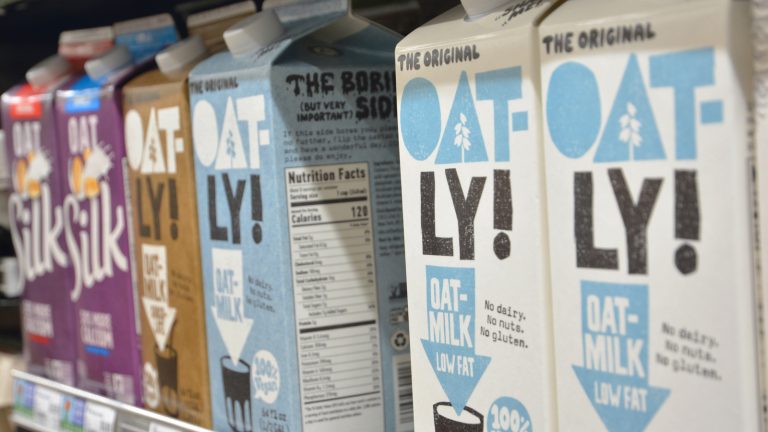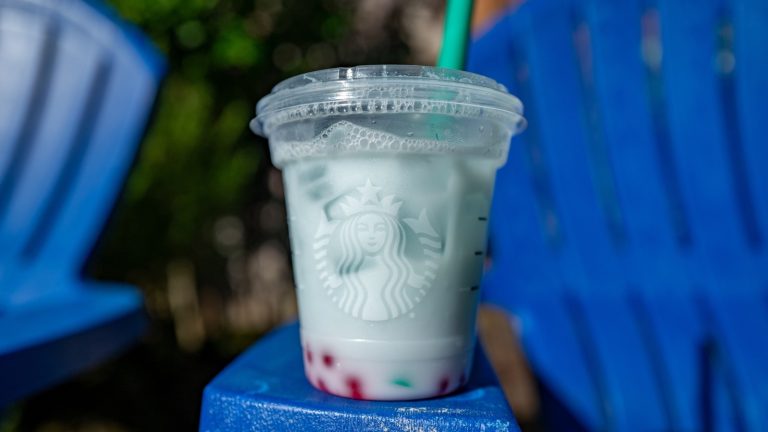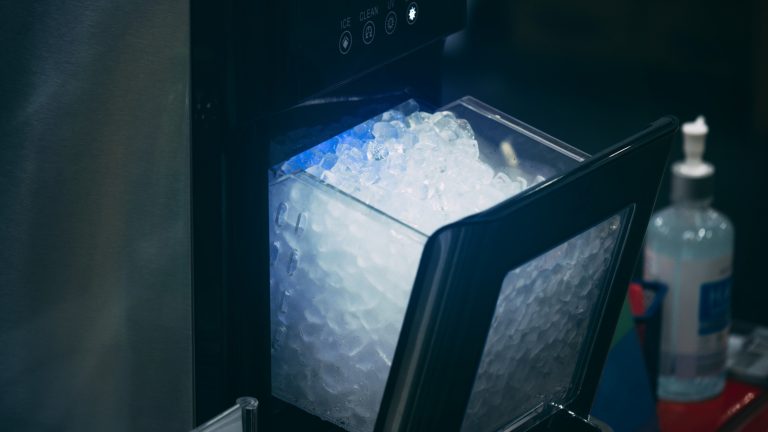We may receive a commission on purchases made from links.
Scotch encompasses single malts and blended whiskeys that run the gamut of prices. We interviewed Chris Walster, whisky connoisseur at The Cask Connoisseur, to understand why you should never order scotch drinks with expensive liquor. According to Walster, “If you have an expensive bottle or one that’s a ‘higher end bottle,’ then I would argue that you should not use a mixer, as you are paying for the specific content which has already been created by the blender of the whisky for a reason.” Ostensibly, you’re shelling out for a more expensive bottle so that you can taste the spirit’s depth of flavor. Adding a mixer to an expensive bottle of scotch will dilute all those subtle tasting notes that the distillery spent time and effort developing.
“If you’re going to add soda water to your scotch, I would certainly tend towards using a blend and/or a cheaper whisky,” Walster explains. “The problem with soda water is due to the carbonation (fizziness), the chemistry of the whisky will be altered, along with the flavour to an extent. Blended whiskies were originally designed to go with soda water, so the chances are blended will go better.” In accordance with Walster, scotch and soda makes our list of cocktails you should order with well liquor. That said, not all blended scotch is cheap; expensive blends are mixtures of various single malt whiskeys that also offer a sophisticated complexity. You can thus enjoy a high-end scotch cocktail like a whisky highball that’s popular in Japan.
Mixers that work with scotch and how to add them
While an expensive and complex bottle of scotch is worth savoring without any mixers, the notion that it should only be sipped neat is one of the scotch whisky myths you should seriously stop believing. You can still taste the range of tasting notes in your scotch with a drop or two of water, or on the rocks. To that effect, Walster has a few tips on how to construct a scotch and water. “If you do wish to use a mixer, your best bet would always be to use water from the same source as the distillery; this will not alter the chemistry of the whisky and hence the flavours beyond reducing the alcohol content to a level that you prefer. If you can’t get the exact water, then at the very least match the water type (e.g. hard/soft) and that will work reasonably well.”
You can find out the type of water used for your expensive bottle of scotch by visiting the distillery’s website. Most distilleries disclose where they source the water used to make scotch. For example, Glenmorangie scotch is made using water from the Tarlogie Springs, and Glengoyne sources its water from the Loch Katrine. Finally, Walster cautions against adding too much water, and recommends that you “use a pipette to add your water, and do so gradually (one or two drops can make a huge difference to the flavour).” Adding water a drop at a time is certainly a pro move, and you can even buy a chic glass pipette like this Glencairn (available on Amazon) designed specifically for such a task.


